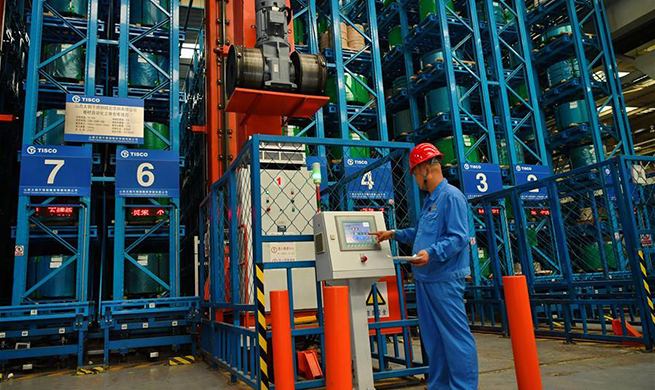HONG KONG, June 4 (Xinhua) -- A research team led by the University of Hong Kong derived expanded potential stem cells (EPSC) from pig and human, offering new avenue for the study of embryonic development, regenerative medicine and biotechnology, the university said on Tuesday.
The university collaborated with Wellcome Sanger Institute in Cambridge in Britain and the Friedrich-Loeffler-Institut in Germany, and successfully derived and characterized these new stem cells from pig preimplantation embryos. The scientists also established EPSCs in human using the same technique.
Pengtao Liu, Professor from the university's School of Biomedical Sciences, said that this is the first time scientists have been able to derive stem cells from early pig embryos, adding that domestic pigs have great potential for biomedical research because of their similarity to human genetics, anatomy and physiology.
Transplantation of pig organs to human, for instance, can help stabilize the condition of patients while waiting for human organ transplantation, but this is only temporary, Liu said.
The first breakthrough from Liu's research group came with mice in 2017, when key molecular pathways that drive cell lineage differentiation were targeted. The most recent study on human and pig EPSCs suggests that this approach might be possible with mammals that hitherto had been elusive to stem cell researchers.
According to the researchers, EPSCs possess developmental potency that is not generally seen in conventional embryonic stem cells. These new stem cells enable researchers to study early embryonic development, miscarriage and developmental disorders.
The findings were published in Nature Cell Biology.



















